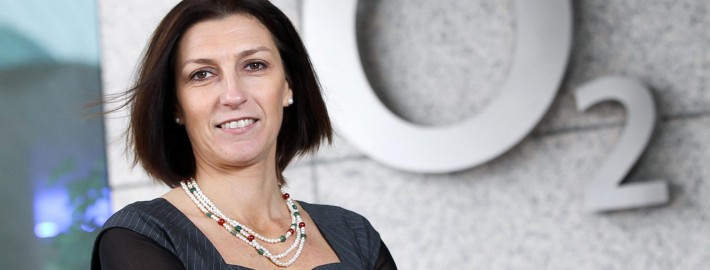Work is what you do, not where you go
We’re a connected nation with an ‘always on’ technology culture that pervades every aspect of our daily lives.
According to a recent report by Eircom, 24 per cent of us check email first thing in the morning and 18 per cent last thing at night. And on average, adults have access to four online devices at home.
This consumerisation of IT or the blurring of lines between the personal and professional is gathering pace and it’s enabled by greater mobile broadband speeds and feeds.
Reflecting this shift in consumption patterns, mobile data volumes are continuing to rise according to the Commission for Communications Regulation (ComReg), increasing by 39.7 per cent in the year to Q3 2013 to reach just over 10,500 terabytes.
Interestingly, this is matched by a corresponding decline in the total number of SMS messages sent by mobile users in Ireland which was down to 2.28 billion, a decrease of a whopping 25 per cent on the same period in 2012.
“Mobility is the order of the day,” according to David Walsh, director of commercial & SME with Eircom Business. “Mobility gives greater flexibility and drives up people’s efficiency and productivity, making them more responsive. The access to mobile devices and mobile apps allows sales people to do more on the road and this is being enhanced by our 4G service,” he says.
Launched at the tail-end of 2013, the customer reaction to that 4G service has been “very positive” according to Walsh.
“We’re seeing download speeds of 20 – 25Mbps, which is really impressive compared to the average speed on 3G which is just one-tenth of that,” he said.
Eircom is currently the only 4G network supporting iPhone 5 on 4G and coverage extends to four cities and 28 towns. There are now 19 different devices available on varying price plans.
“4G users consume almost twice as much data as 3G users,” said Walsh. “Think about what that means. People are asking themselves: ‘how can I use my mobile to enrich my life?’ and that might sound grand, but it’s about making things simpler, faster and more accessible.”
Leo O’Leary, head of sales with Vodafone Ireland also reports a successful launch of its 4G service.
“The uptake has been exceptional,” he says. “The numbers are very significant both pre-Christmas and into the New Year. And we’re seeing strong adoption across all markets, even from the SME sector.”
Vodafone partners with app providers to provide an end-to-end mobile solution. It integrates business functionality with the compact form factor of a tablet to deliver a pocket-sized powerhouse of productivity and efficiency.
Alan Foy, CEO with IP telephony services company, Blueface believes that 4G will gradually become a “game changer” for businesses in Ireland.
“In the same way that we have transformed our broadband infrastructure nationally, we will see real benefits afforded to mobile users by 4G. The applications, speeds and reach are all transforming how we do business. 4G will enable services and applications that will change how we use, enable and interact with our colleagues, customers and partners,” he said.
And the growth in mobile working is not just limited to mobile broadband.
Telecoms services provider, UPC has seen strong uptake in a remote working service it launched last year. The offering was developed on the back of data from Amárach Research, which revealed that one in every six businesses was allowing at least one person to work from home at least one day per week.
“We supply a business broadband connection at home with a static IP address, the ability to run VPNs from home to the office so users can connect to their key business applications and retrieve data off public servers,” explained Gavan Smyth, VP of business services with UPC. “Home workers also get business-level customer support which is based in Dublin and separate to our consumer service desk,” he said.
“Work is what you do, not where you go,” according to Nicola Mortimer, head of business product portfolio management with O2 Ireland.
“It shouldn’t be dependent on being in a highly connected city. It’s about being able to get true mobility whether it’s location-based or moving about. It’s about giving a similar user experience across the variety of technologies but you have to have that ubiquity of coverage.”
“It’s trying to get that 4G experience more pervasive,” she said. Currently, only 1 per cent of our customer base would have a 4G-enabled handset so this needs to grow in parallel with network coverage so customers can benefit.”
Three has just launched its 4G services and O2 Ireland will follow later this year.




Leave a Reply
Want to join the discussion?Feel free to contribute!